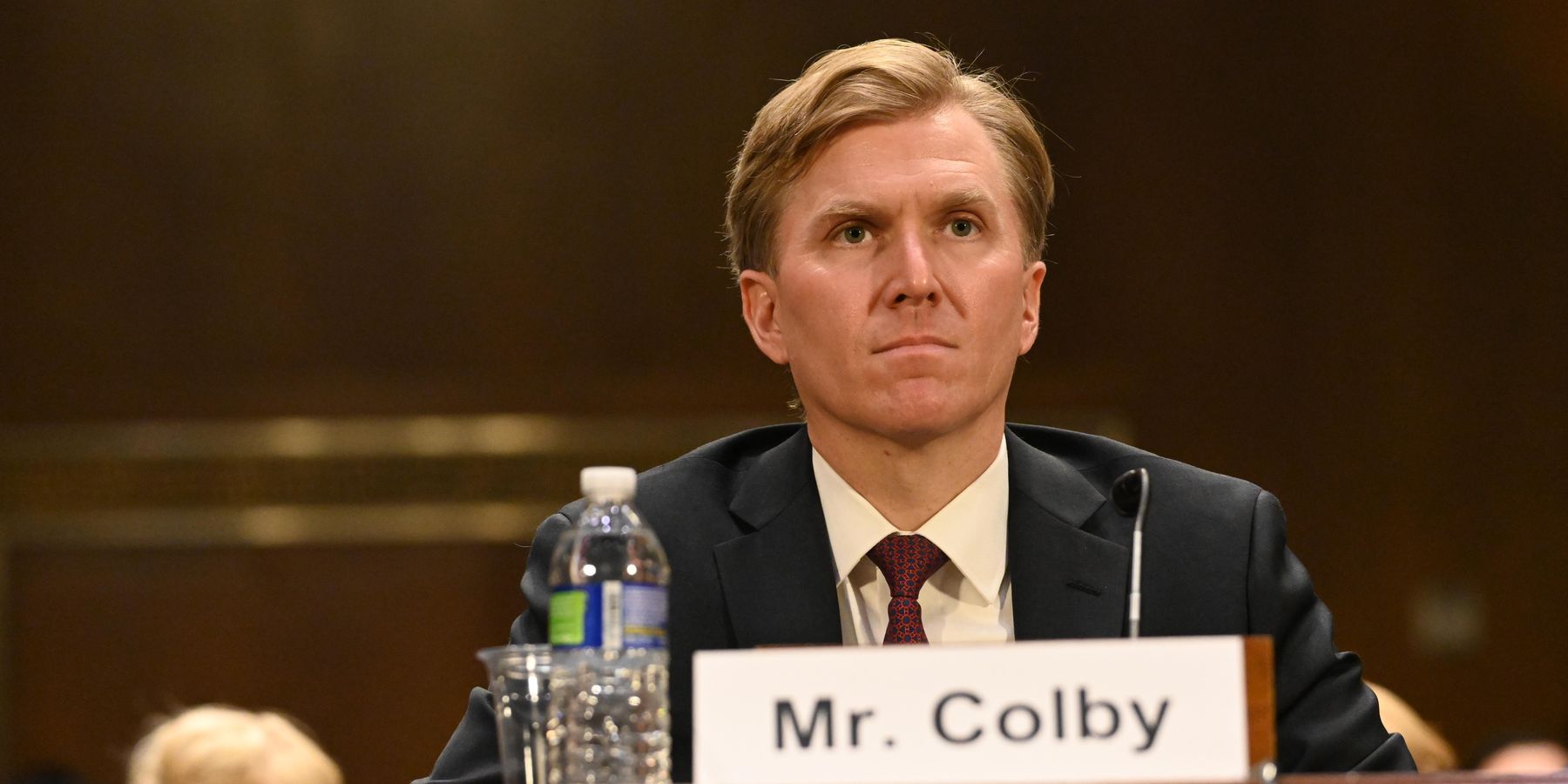In his senate confirmation hearing on Tuesday, Elbridge Colby, nominee for Under Secretary of Defense for Policy, stood out as one of the few people auditioning for a Pentagon job who say they may want to deploy fewer U.S. troops across the globe, not more.
“If we’re going to put American forces into action, we’re gonna have a clear goal. It’s going to have a clear exit strategy when plausible,” he told the Senate Armed Services Committee.
“A lot of my advocacy and commentary as a kind of public intellectual, if you will, has been pushing back against a lot of people who… [are] quite cavalier about the employment of military force.”
Colby said he and Secretary of Defense Pete Hegseth were on the same page. “We have a team that understands strength for sure, but also understands… the downside risks of the use of military force, and the importance of not being cavalier about… deploying our men and women in uniform.”
If confirmed, Colby’s role, essentially, would be to develop and advance a grand strategy for national defense, a position vital toward steering the Trump administration’s foreign policy direction. Colby had previously served under the last Trump administration as Deputy Assistant Secretary of Defense for Strategy and Force Development from 2017 to 2018.
The confirmation hearing was highly anticipated amid chatter that some congressional Republicans, skeptical of some of Colby’s realist foreign policy positions, could block the nomination.
Apparently anticipating a battle, Vice President J.D. Vance provided Colby’s official introduction Tuesday morning. "In so many ways, Bridge predicted what we would be talking about four years down the road, five years down the road, 10 years down the road. He saw around corners that very few other people were seeing around,” Vance said, calling Colby a friend.
Senators clearly wanted to test that foreign policy vision, particularly on Ukraine, Taiwan, and Iran. Senate Armed Services Committee Chair Roger Wicker (R-Miss.) challenged Colby’s position that “America has a strong interest in defending Taiwan, but Americans can survive without it.”
“Your views on Taiwan’s importance to the United States seems to have softened considerably,” Wicker mused to Colby.
"What I have been trying to shoot a signal flare over is that it is vital for us to focus and enable our own forces for an effective and reasonable defense of Taiwan and for the Taiwanese, as well as the Japanese to do more," Colby responded.
“I have some concerns about what you’ve said in the past, namely if we had to choose between hoping to contain a nuclear Iran and preventing Iran with military force from getting nukes that we should tolerate a nuclear Iran and try to contain it,” Senator Tom Cotton (R-Ark.) told Colby, while acknowledging a written statement from Colby that Iran should be prevented from developing a nuclear weapon.
Cotton asked Colby whether he would “commit to providing the President with credible, realistic military options to stop Iran from going nuclear.” Colby affirmed he would if diplomacy fails, agreeing that a nuclear Iran would be “an existential danger.” Senators grilled Colby on the Trump administration’s Ukraine strategy, much like they did during billionaire investor Stephen Feinberg’s Deputy Secretary of Defense hearing last week.
“I cannot believe that the United States would side with dictators over democracies, over our democratic partners and allies. We must stand with Ukraine,” Senator Jacky Rosen (D-Nev.) said, slamming the recent Trump-Vance-Zelensky debacle which left Zelensky without a deal last week. Senators Tammy Duckworth (D- Ill.), Mazie Hirono (D-Hawaii), and Angus King (I-Maine) also asked Colby explicitly whether Russia invaded Ukraine.
Saying that he was concerned his comments might disrupt ongoing diplomatic negotiations towards ending the Ukraine war, Colby largely avoided answering questions along these lines.
Other moments went more smoothly. To the approval of senators present, for example, Colby said he’d advocate for higher defense spending levels to prop up the country’s defense industrial base. “I think we’re in a situation where more robust levels of defense spending are clearly good,” Colby said.
Colby had other chances to showcase his realist foreign policy perspective at the hearing.
Although he stressed NATO’s importance as a military alliance, for example, Colby also noted that “we are not in a unipolar, military dominant situation with respect to NATO.” Indeed, he explained that the growing prominence of intergovernmental organization BRICS was a "representation of the changing world dynamic,” where the U.S. would have to contend with the realities of other nations gaining more ground in world affairs.
“We’re no longer in Charles Krauthammer’s unipolar world,” he said, citing the late columnist’s famed 1990 article, which framed the U.S. as the global hegemon. “The Saudis are talking to the Russians and they’re talking to us, that’s how the world is going to be. That’s the reality of the world system as it is now.”
Altogether, senators present expressed mixed feelings toward Colby’s performance. Reports indicate Democrats will unite against Colby’s nomination, meaning even one Republican voting against him may block his ascension to the position. However, Senate GOP sources suggest that Colby faces less resistance now that more controversial Trump picks, like Hegseth and Gabbard, have been confirmed.
At the time of writing, details about when a final vote may take place remain unclear.
















